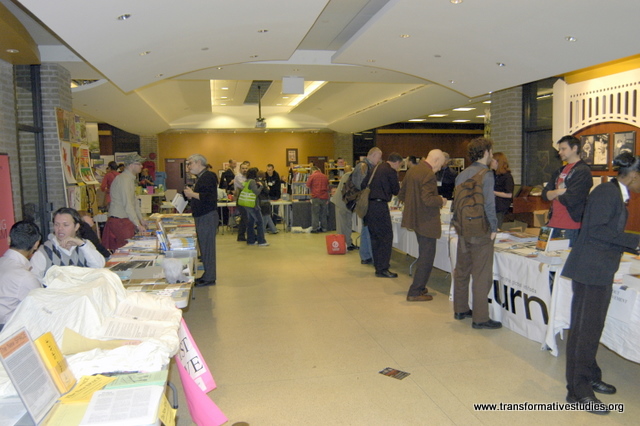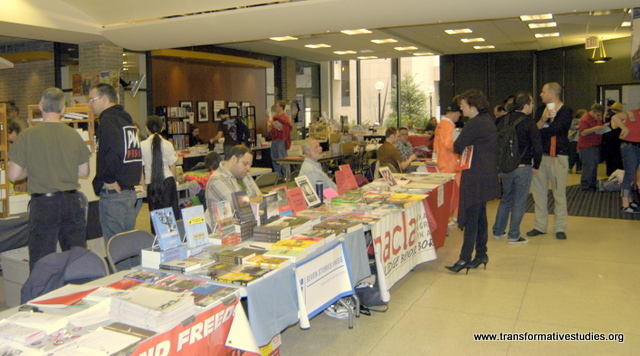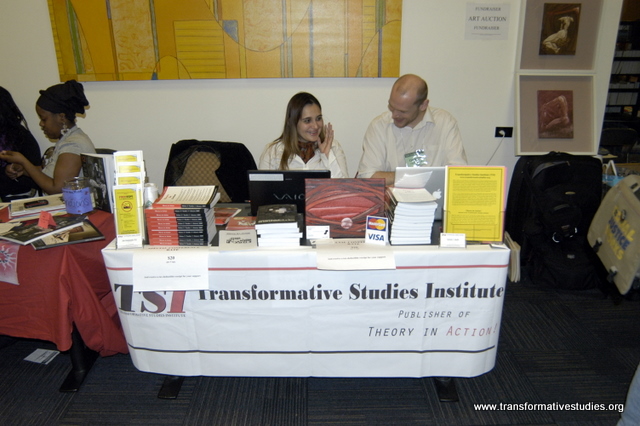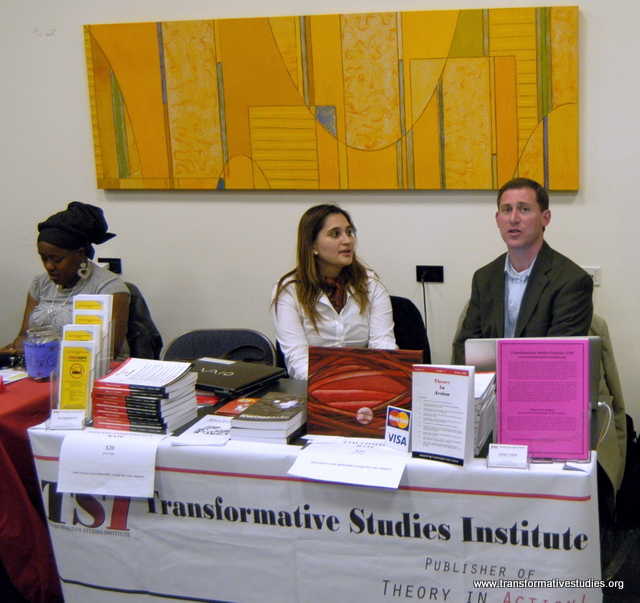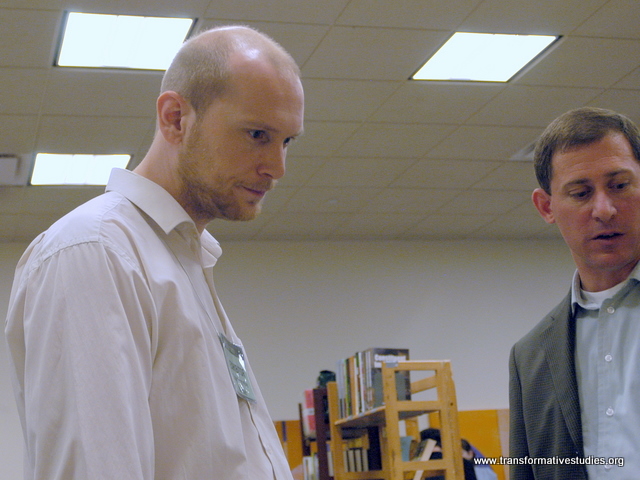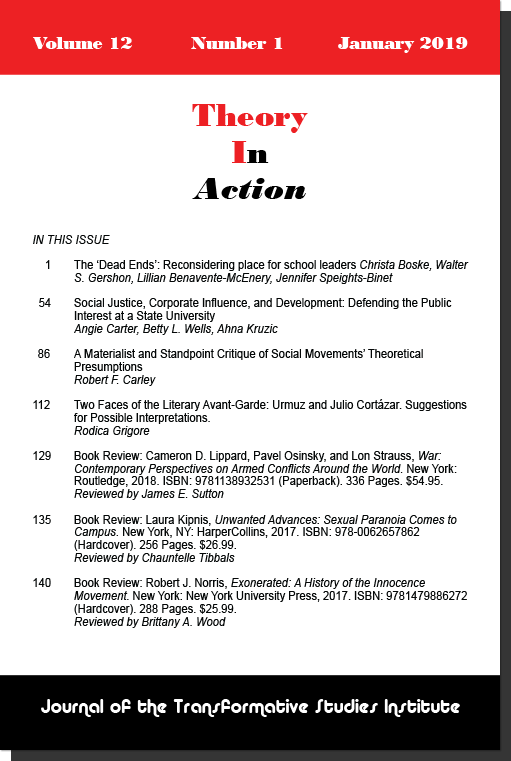Phase I
In phase one TSI will recruit an initial thirty progressive researchers from diverse intellectual, personal, and national backgrounds to serve as research fellows. The researchers will have interdisciplinary interests in fields that include, but are not limited to, Sociology, Law, Political Science, History, Anthropology, Economics, Arts, Linguistics, Environmental Engineering, Literature, Education, Philosophy, Public Administration, and Public Policy.
Qualification Criteria
1. Proven record of progressive academic research.
2. Proven record of activist scholarship and engagement.
3. Preference to independent scholars and dissidents.
TSI proposes to employ the researchers in the United States at a highly competitive annual salary with full health benefits for an initial two 3 year contracts and tenure after that point. Upon tenure, the scholars will be given co-governance of the research agenda. The scholars will work with major grassroots activist organizations initially primarily in the United States to develop a radical social movement. The goal of the movement will be: to end the privatization of socially important goods and services (e.g. education, health care, utilities, transportation, public infrastructure, defense, housing, and social services) and to establish full economic democracy. This will be done by advocating:
- Direct political and economic democracy
- Prohibition of corporate involvement in any political process
- News media as an independent public utility
- Free and equal public education at all levels and the nationalization of private educational institutions
- Equal treatment of all individuals and groups
- The right to make one’s own reproductive decisions
- Guaranteed housing
- Universal single payer healthcare
- Guaranteed family income
- Sustainable development and renewable resources
- Direct action for social justice
The entire team of researchers will function as a collective with regular staff updates and meetings. Each of the researchers will be assigned to collaborate respectively with activist grass roots organizations focusing on a specific area, based anywhere in the U.S., and chosen in consultation with the executive board. The category of mass movement building will have four researchers assigned to it. The expertise of the researchers and the corresponding specific areas, goals, and types of organizations they will collaborate with must be focused on and have mission statements to pursue the categories listed below each of which will have to include the following component considerations:
Mass media and public awareness efforts
Alliance formation
Implementation strategy
1. Political & democratic institutional reform
2. End all involvement especially financial (both direct and indirect) of corporations and rich
individuals in the democratic process and public policy formation at all levels of government
3. The elimination of government supports and wealthfare for corporate and wealthy persons
4. Corporate community governance and administration
5. Egalitarian housing and sustainable development communities
6. Educational reform
Comprehensive policy formation k-postgraduate
• egalitarian federal financing and the elimination of other financing systems
• curriculum reform
• teaching reform
• elimination of private educational institutions
Corruption watchdog for university policies and actions
• donor influence
• student admission policies and student body make-up
• labor practices (from custodians to faculty and staff)
• ethical community behavior
• questionable government and or power elite collaboration and affiliations i.e. think tanks, policy formation groups, public policy programs, etc.
Labor law reform
• collective bargaining
• striker rights
7. Domestic economic policy
• infrastructure e.g. telecommunications, transportation, housing, parks
• tax policy reform for egalitarianism and social justice
• addressing issues of corporate and wealthy individuals, offshore tax heavens, loopholes, etc.
8. National health care system & social services reform
• fully subsidized universal health care
• maternity and paternity paid leave
• six weeks vacation leave
• twenty days family leave
• minimum living standard supports for people in need
• elimination of homelessness
• comprehensive social security reform
9. Fair Trade & globalization policies
10. Civil liberties law reform and protections
• universal free legal aid
• law enforcement reform
• penal system reform
• legal code reform & decriminalization of drug addiction and poverty induced actions
11. Media, news media, and independent objective journalism reform
12. Government accountability in spending and decision-making
13. U.S. foreign policy
• Support of democratic regimes
• Non-collaboration with dictatorships and undemocratic regimes
14. Art and popular culture
15. Mass movement building-civil rights (this category will be assigned four researchers) to create an umbrella progressive movement to accomplish the above policy reforms through the democratic process, civil disobedience, and direct action with particular focus on:
• Political Institutions
• Media and Reporting
• Community Support
• Corporate and Educational Institutions & Think Tanks
Phase II
Upon solidifying the relationships with our staff and activists organizations, TSI will expand to operate as the world’s first activist doctoral degree granting university. The initial student recruitment will be limited to three hundred of which one hundred will be reserved for international students. TSI will have suggested tuition but will not actually charge tuition. Furthermore, TSI will offer accommodations imbedded within the community at no charge.
Housing
TSI will purchase local homes capable of housing at least 4 students each. The students will then be responsible for running and maintaining the household including, cleaning, cooking, yard work, etc. This is designed to integrate life skills with academic skills and good neighbor/citizen practices.
Faculty
The thirty researchers will serve as the faculty with each being assigned a total of ten students to supervise and mentor. Faculty will also be offered housing imbedded in the community and in near proximity of student housing. The intention is to create a model of apprenticeship learning. Students and faculty will be anticipated to form personal and lifelong professional relationships. Learning will be a 24-7 process during both formal activities and informal life experience.
Learning
The formal component of learning will last four years and will end with the conferral of the formal doctoral degree. Learning will take place as an internship with students actively assisting the researchers and activist organizations with assignments and projects. In addition, students will be assigned readings and traditional academic assignments in order to fulfill their studies/requirements. Each researcher will devote the equivalent of 6 credit hours per week in formal instruction.
However, the bulk of learning and training will occur during the hands-on application of knowledge during the full-time day apprenticeship. To this extent, students will be expected to work as research assistants in charge of given tasks and assignments for 25 hours per week.
The research and goals of the University and the student apprenticeship program will be to transform society for equality and social justice.
Phase III
Establish sister campuses in all major US cities and then expand to:
Canada
Latin America
Europe
Japan
Australia



